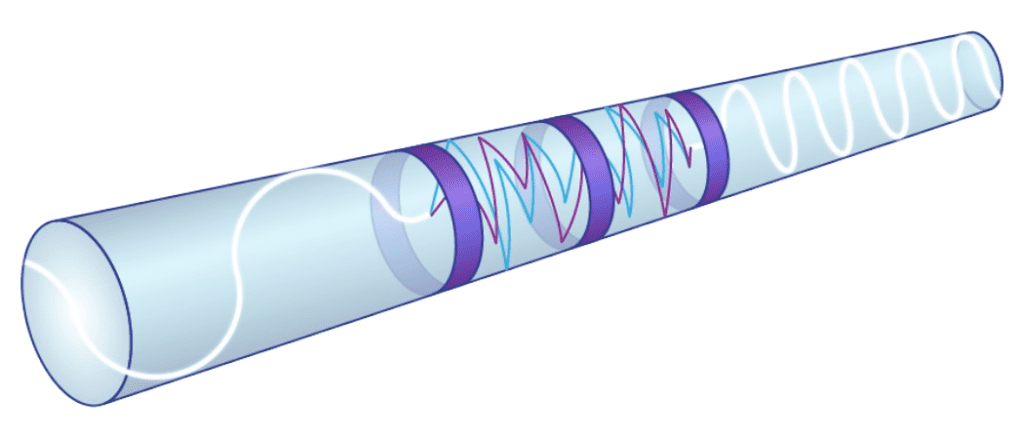OFS AcoustiSens® Optical Fibers used in random OPO system demonstration
Once again, OFS optical fibers are paving the way for researchers to bring cutting-edge technology out of the lab and into practical applications. This time, we’re delving into the realm of optical fiber sensing – a technology that relies on a carefully tuned light source with specific traits like wavelength, power, and pulse width.
Generally optical fiber sensing starts with a laser, but they come with a catch: lasers have their materials carefully selected to emit stable light pulses at a specific desired wavelength, limiting their flexibility. A system with wavelength modulation promises exciting innovations for fields as diverse as quantum computing and LiDAR sensing.

Enter the optical parametric oscillator (OPO). It transforms regular laser light into controlled wavelength pulses by guiding the laser light into an optical cavity, bouncing it around nonlinear crystals and resonators. As the light moves through the cavity and is sent back over itself multiple times the system changes wavelengths and creates parametric amplification.
However, there’s a hiccup in this dazzling performance: OPOs are quite sensitive to temperature and environmental changes. Even small changes impact the wavelength and power of the light as it exits the cavity, confining OPOs mostly to high-maintenance lab settings.
Researchers theorized that a random laser, which encourages scatter in the light source, would make the system more robust because the scattering would come from the controlled design of the laser and not be at the mercy of environmental changes in the optical cavity.
A groundbreaking paper from the University of Ottawa validates this concept. A team demonstrated, for the first time, that an augmented sensing optical fiber like OFS’ AcoustiSens can make this idea a reality. AcoustiSens is manufactured with enhanced Rayleigh scattering and this scattering allowed the OPO system to have stable, tuned wavelengths in a simple and robust optical cavity.
Congratulations to the University of Ottawa team and to all the technologists working to unshackle OPOs from the lab.
Tags: fiber optic sensing, optical fiber, optical sensing, sensing


Comments are closed